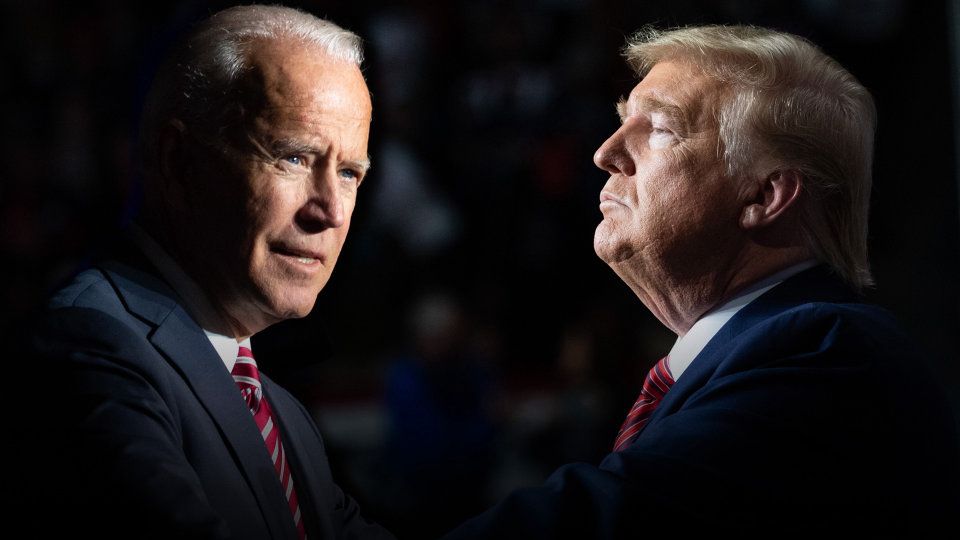Trump and Biden have very different ideas for addressing mental health care

A few minutes every morning is all you need.
Stay up to date on the world's Headlines and Human Stories. It's fun, it's factual, it's fluff-free.
With former Vice President Joe Biden, as the presumptive Democratic nominee, set to challenge President Donald Trump in this year’s presidential election, both men have gone to great lengths to demonstrate how their leadership would differ from the other’s.
Biden and Trump diverge on a range of issues, but few issues illustrate their differences more clearly than that of mental health care.

Both candidates have talked about the issue extensively. Trump often cites mental health when it comes to gun violence in the United States and has gone so far as to suggest reopening mental institutions.
Biden, by contrast, has talked about the importance of destigmatizing mental health issues and of ensuring that mental health care is covered by individuals’ health insurance.
Donald Trump on mental health care
During the 2016 election, Trump was asked about mental health as part of the Science Debate questionnaire, a nonpartisan online forum in which political candidates are asked questions on topics related to science. (This year’s questionnaire has not yet been completed.)
In his mental health-related answer for the 2016 presidential election, Trump called the problem “one of the great unfolding tragedies in America today.” He criticized the reduction in state-funded mental health care, acknowledging that prisons have become the de facto mental health institutions in America.
“We must make the investment in treating our fellow citizens who suffer from severe mental illness,” Trump stated. “This includes making sure that we allow family members to be more involved in the total care of those who are severely mentally ill. We must ensure that the national government provides the support to state and local governments to bring mental health care to the people at the local level.”
The president has advocated for greater health care coverage, often in the wake of multiple deadly shootings that have taken place since he’s been in office.
However, healthcare experts worry that the policies of the Trump administration have actually made it harder for people who need mental health care to get it.
The Center on Budget and Policy Priorities has said that the Trump administration’s work requirements for Medicaid benefits “harms people with mental health conditions.”
Medicaid is the largest provider of healthcare in the US, covering 26% of those with serious mental health conditions. Enforcing work requirements on Medicaid means that those individuals whose mental health conditions prevent them from working would end up losing their coverage.
Joe Biden on mental health care
Trump’s actions related to Medicaid put him in direct conflict with Biden, who as President Barack Obama’s Vice President helped to pass the Affordable Care Act (ACA, also known as Obamacare). One of the major reforms of the ACA was an expansion of who was eligible for Medicaid.
The Trump administration has reduced Medicaid coverage.
On his campaign website, Biden touts his record of expanding mental health care as Vice President and pushing back on the social stigma related to the issue. Biden says his presidency would continue the work that the Obama administration began and expand coverage related to mental health even further.
Biden has also spoken of the need for “mental health parity,” as laid out by the Paul Wellstone and Pete Domenici Mental Health Parity and Addiction Equity Act of 2008 (MHPAEA).
Creating mental health parity means ensuring that insurance covers mental health in the same way that it covers other forms of healthcare. Traditionally, mental health coverage has been more expensive and more restrictive. The MHPAEA, which was signed into law by President George W. Bush, was expanded and strengthened by the ACA.
Trump wants to reopen mental institutions
One of the more distinctive stances Trump has taken in relation to mental health care is his advocacy for the reopening of mental institutions. Though his administration has not taken any action to do so, Trump has publicly stated that he thinks it would be a solution to the mental health crisis that he believes is fueling America’s mass shootings.
“In the old days we had mental institutions,” he told reporters in a press conference following a February 2018 school shooting in Parkland, Florida. “We had a lot of them. And you could nab somebody like this because they knew something was off.”
“You have to do something, but you can’t put him in jail,” he continued, discussing how he believes a possible shooter could be apprehended before he commits a crime. “He hasn’t done anything, but in the old days, you would put him into a mental institution. And we had them in New York, and our government started closing them because of cost.”
The closing of America’s mental institutions
Most American mental institutions have been closed, often due to costs.
In an attempt to ease budgets, most states closed their institutions (often called “insane asylums”) that housed the mentally ill. This deinstitutionalization sought to move these long-term patients into mental health care centers funded by the federal government. There are currently just over 600 non-federal psychiatric hospitals in the US.
One side effect of the deinstitutionalization was fewer options for care for the mentally ill. Patients now receive a shorter period of treatment and are then discharged from health centers, often with no place to go.
The American prison system has ended up taking on much of the burden, with one particular jail in Chicago, Illinois, having the distinction of being the “largest mental health care provider” in the country.
However, reopening mental institutions is a controversial idea among mental health care providers. While psychiatrists are critical of the current system, which results in many mentally ill people being thrust into the prison system, many say the history of mental institutions was not much better.
In an interview with The New York Times, Jennifer Mathis, the director of policy and legal advocacy at the Bazelon Center, said the institutions were essentially a way of “warehousing people,” not treating them. Mathis says that such institutions were often places where patients were mistreated, experimented on and generally forgotten.
“Locking people up long-term is no treatment at all,” Mathis explained. “The idea that we could be going back to those days – we did this before, and it failed and failed badly – it’s crazy and discriminating.”
[article_ad]
Have a tip or story? Get in touch with our reporters here!
Sign up for daily news briefs from The Millennial Source here!




Comments ()